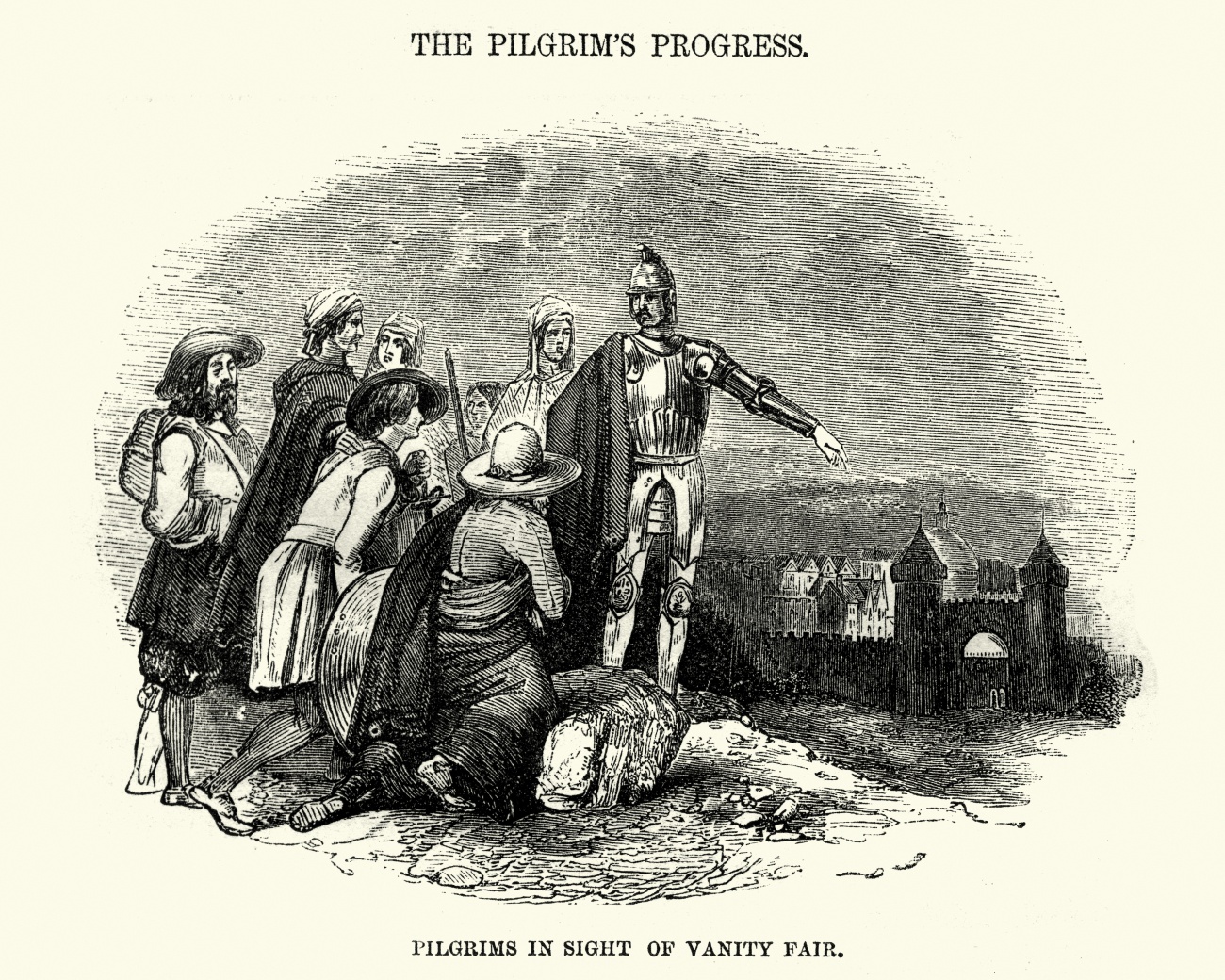What is Our Goal? How Do We Get There? Luke 9:51-56
Too many today are governed by desires for immediate gratification, rather than by reason.
In order to begin anything, we must know the goal that we want to achieve. Without a clear end to be sought, we can do nothing more than meander aimlessly from one stimulus or one pleasure to another. Those who have chosen to live this way are like those little silver balls in a pinball machine, randomly, even painfully, bouncing off of unexpected, immovable objects in the way. They are tossed by every whim or fancy or are manipulated by some controller/s pushing buttons that prevent them from reaching a final, meaningful goal, or that drive them to goals that they do not intend or desire.

This is a fair description of our postmodern societies. Too many today are governed by emotional stimuli and undisciplined desires for immediate gratification, rather than by reason. This is a materialistic age where, more often than not, image prevails over substance. Images stimulate immediate emotional responses. Hence the popularity of social media and the constant thirst for endless entertainment. In our times, personal feelings have come to be seen as the source of truth, that is to be understood as, “my” truth. Many rebel against anything that smacks of universal truth precisely because such truth demands submission, adherence, and personal responsibility.
Reason, on the other hand, requires thought, that is, consideration of ends and means, and of potential consequences. It requires self-discipline, humility, prudence, and responsibility. As Christians, we know what our goal is and we have a perfect model for how to get to it, that is, Jesus Christ. Jesus is the stillpoint upon which all of reality spins. In the gospel reading from Luke 9:51-56, we see the model and the goal in just a few short words. “When the days for Jesus to be taken up were fulfilled, he resolutely determined to journey to Jerusalem, and he sent messengers ahead of him.” He knew his goal. He knew its meaning, its purpose, and he would not be deterred. And that goal is our goal too.
On their way to Jerusalem, one Samaritan village refuses to welcome Jesus, precisely because his final goal is Jerusalem. His disciples respond to this rejection by asking Jesus if they should “call down fire from heaven to consume them?” They want the immediate gratification of vengeance on these Samaritans. But Jesus rebukes them. That is not the way he is teaching them, nor is it the path he wants them, or us, to follow. Rather, if we truly want to follow him in this world he says to us, “Whoever wishes to come after me must deny himself, take up his cross, and follow me. For whoever wishes to save his life will lose it, but whoever loses his life for my sake will find it. What profit would there be for one to gain the whole world and forfeit his life?” (Luke 16:24-26).

Our goal, too, is “Jerusalem”, or the kingdom of God, and our path, like Jesus’, runs straight through the middle of this world. We know our goal, and we know the Way we must follow. It is the way of Jesus Christ, not the ways of man. “Do not put your trust in mortal men, who cannot save” (Psalm 146:3). We know that Jesus alone is the Truth and the Life that we were baptized into and that we ought to set our eyes on. In Luke 9:51-56, both the Samaritans and the disciples represent recognizable worldly views and responses. The Samaritans refuse to welcome Jesus simply because Jerusalem, their imagined, religious arch-enemy, is his goal. They are blinded by their prejudices and their ignorance. Does this sound familiar?

The disciples, too, are blinded. In their case, they are blinded by a recognizable desire for vengeance, immediate, swift, and ultimate, believing that they are “defending” Jesus. Is this not the kind of behavior we see all around us, in politics, in the social media, on the news? How does Jesus respond to this? He rebukes them. And we, too, should hear that rebuke personally.
Vengeance and prejudices are not his way, or his truth, and certainly not the way of life he wants us to live in this world. He does not want us to follow the model of the world. He wants us to be a sign of contradiction to it. He wants us to live in ways that open the eyes of those blinded by the world’s demands. He wants us to shed the light of Christ’s truth into the darkness of the world, and to bring it out of that darkness into the light that is Jesus Christ. And he knows that the world resists being shown its faults and destructive habits. If we are to be Christians, we must follow him alone, even if it means experiencing the cross. He is asking us to cooperate with him in the salvation of the world, by following his example. Lord, give us the courage to do so.
SKM: below-content placeholderWhizzco for FHB

